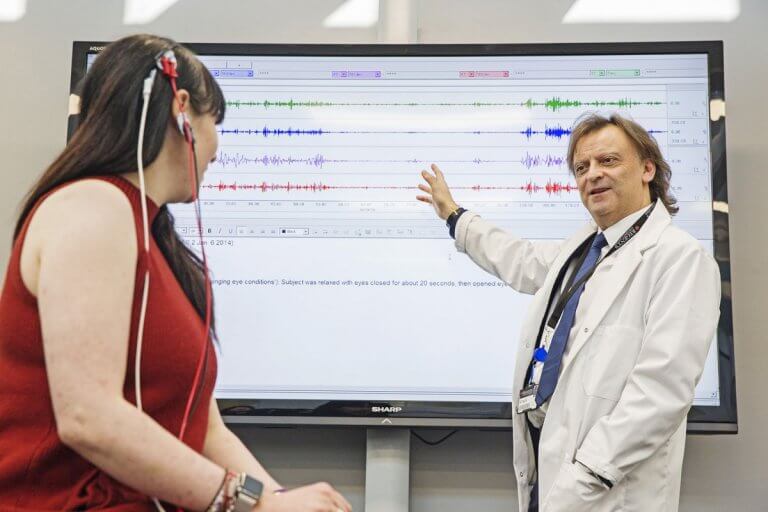
Without psychology, where would we be?
Through examining the science of human behaviour and the power of the mind, society has witnessed thousands of research revelations and extraordinary discoveries that have allowed us to advance.
A forever fashionable subject, millions of students opt to study psychology at both undergraduate- and postgraduate-level, especially since the birth of social media and its rapid distribution of fake news.
As we continue to build digital portfolios on social media platforms like Twitter, Instagram and Facebook, we are drawn into a virtual dimension linked to a long list of psychological implications.
The social pressures of having the ‘perfect’ Facebook photo, and the need to achieve more than 50 ‘likes’ on pictures means we spend more time scrolling through our feeds then we do in face-to-face interactions with friends.
We’re all too aware that social media can negatively impact our mental well-being. A recent study in the journal Depression and Anxiety is just one in a flurry of scientific ventures that has shown social media to be linked to depression.
Our social media profiles bombard us with heavily airbrushed images and videos that depict the ‘successful’ lives of the impossibly ‘beautiful’. We can’t help but compare our lives with the ‘perfect’ imagery on our screens. This can lead to feelings of helplessness, hopelessness and fears that you just aren’t good enough. This is where psychology can help…

Source: Regent’s University London
Just because the cyber community feeds you unrealistic representations of the ideal life doesn’t mean you’ll be happier by conforming to its standards. The world needs highly-skilled psychologists to prevent social media’s demand for perfectionism and help steer clear of its negative effects.
Social media is also a common culprit of disseminating misinformation. As an example, researchers from Regent’s University London discovered a bewildering array of information about politics online. Regardless of whether it’s true or false, content we see in our news feeds has the power to sway voter decisions in important political events, as demonstrated in the 2016 Trump vs. Clinton election.
Research from the likes of Ben Tappin and Ryan McKay from Regent’s School of Psychotherapy & Psychology found that, “People revise their political beliefs more if new information matches up with what they want.”
Throughout the US election, for example, many voters based their decisions on misinformation and fake reports published on various social media platforms. “Finding and occupying the common ground — focusing on outcomes we all desire — may be one way to combat this polarization,” McKay concludes.
For those seeking an introduction to the foundations of psychology and traditional terminology, the BSc (Hons) Psychology is a great course to pursue.
This full-time undergraduate degree delves into topics like Individual Differences in Society, Biological and Cognitive Psychology, Global Perspectives, Psychopathology and more.
You’ll benefit from specialist facilities, discussing important issues with peers before employing advanced tools to refine your findings.
After in-depth exploration into the way human minds think, behave and feel, you’ll conduct your own experiments and take part in those conducted by other students and staff.
Covering every major branch of the discipline, the BSc (Hons) Psychology programme encourages you to study memory, emotion, language, perception, social interaction, brain function and various other behaviours over the course of three years.
As undergraduate student, Stella Ivana Kiss, explains “The psychology programme provides…plenty of modules for us to find our best fit for the future. The career path which has spoken to me the most is aiming for a PhD in neuropsychology.”
For students who want to continue their studies in this fascinating field, Regent’s also offers an MSc Psychology.
What makes this programme so valuable is its accreditation from the British Psychological Society (BPS), conferring Graduate Basis for Chartered Membership (GBC) for participants – the perfect opportunity for any career-driven psychologist.
This is extremely beneficial since a BPS-recognised qualification is essential for anyone wishing to pursue a UK career or further study in psychology.
Each term offers a range of different modules for you to discover, so there’s never a dull moment in your Regent’s experience. Compulsory subjects outline biological psychology, cognitive psychology and conceptual and historical issues in psychology. And for optional subjects, you can connect to cultural psychology, the psychology of motivation, humour or religion and belief.
Both undergraduate and postgraduate students gain exclusive access to Regent’s dedicated laboratory, testing cubicles, test library and specialist resources (eye-tracker, EEG, GSR, ECG and respiration hardware, olfactory testing equipment, Qualtrics).
As Master’s student, Shivaji Atre, explains: “Regent’s provides some of the best courses in the field of psychology. After studying the art of psychological counselling, I felt the need to study the science of it. Luckily for me, Regent’s was offering a Master’s in Psychology.”
So, if you’re looking for an unrivalled student experience at a university that provides relevant, content-rich psychology courses, Regent’s University London is an institution worth your investment.
Follow Regent’s on Facebook, Twitter, Vimeo, Instagram and LinkedIn
Liked this? Then you’ll love…
Collaborate with Regent’s community of global creatives
Graduate from Regent’s and join an enterprising alumni community







